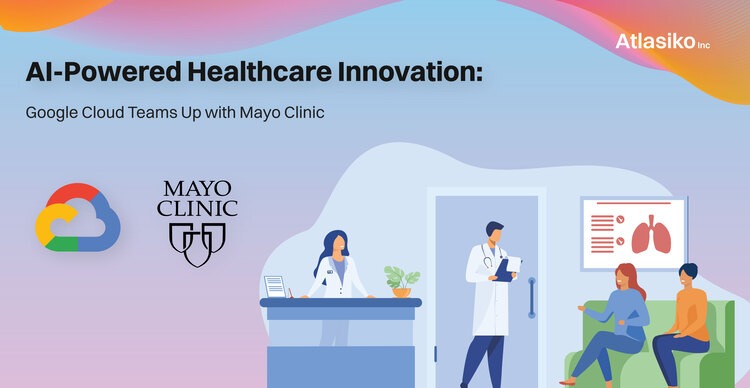Google Cloud and Mayo Clinic have embarked on a strategic partnership aimed at integrating the power of generative artificial intelligence (AI) into the healthcare domain. This collaboration, announced by the tech giant on Wednesday, sets the stage for revolutionizing workflows in healthcare through the adoption of the Enterprise Search in Generative AI App Builder tool. Google Cloud emphasizes that the application is fully compliant with Health Insurance Portability and Accountability Act (HIPAA) regulations, ensuring the utmost security of sensitive patient data.
This tool, called Gen App Builder, will be employed at Mayo Clinic to aid healthcare professionals in efficiently accessing information from various sources. This includes patient records such as lab tests, medical history, and diagnostic imaging, as well as clinical protocols and research papers. Leveraging Google-level search capabilities, the tool facilitates rapid retrieval of essential data, enabling healthcare organizations to promptly find the information they require.
Cris Ross, the chief information officer at Mayo Clinic, views this technology as a way to transform the healthcare system and deliver enhanced patient care while maintaining stringent safety and privacy standards. Ross expresses enthusiasm for the potential of generative AI in revolutionizing healthcare, stating, "Google Cloud's tools have the potential to unlock sources of information that typically aren't searchable in a conventional manner, or are difficult to access or interpret, from a patient's complex medical history to their imaging, genomics, and labs. Accessing insights more quickly and easily could drive more cures, create more connections with patients, and transform healthcare".
Google Cloud's Enterprise Search in Generative AI App Builder not only facilitates efficient data retrieval but also equips organizations with the capability to develop customized chatbots and search programs.
Mayo Clinic is planning to conduct tests on various applications for their search tool in the upcoming months. Vish Anantraman, the Chief Technology Officer at Mayo Clinic, expressed satisfaction with the tool's current capabilities in assisting clinicians with administrative tasks that often lead to burnout.
For example, instead of individually searching for each piece of information, a physician can utilize the search tool to access data on a specific cohort of female patients aged 45 to 55, including their mammograms and medical charts. Similarly, if a physician needs to identify clinical trials that match a particular patient, the tool can provide that information as well.
Anantraman highlighted the benefits of the search tool, stating that it will significantly save time, mitigate physician burnout, and alleviate administrative burdens.
The rise of AI chatbots is becoming increasingly prevalent in various industries, mainly after the launch of ChatGPT by Open AI last fall, which actually blew the world away with its multifunctionality and usefulness, thus starting a race for dominance in the field. Google itself has previously presented its AI chatbot Bard. And Gen App Builder by Mayo and Google is not the first case of AI use for medical purposes.
It is worth noting that Google has been actively venturing into the medical field in recent times. In April, the company made waves with the announcement of its medical language model AI initiative, Med-PaLM, and Med-PaLM 2. Furthermore, Google introduced AI-powered technologies designed to expedite claim processing for health insurance companies and enhance cancer detection through diagnostic tools. Mayo Clinic has also previously collaborated with Google on initiatives aimed at improving care for individuals affected by head and neck cancers.
By leveraging the power of artificial intelligence and Google's advanced technologies, the collaboration between Google Cloud and the Mayo Clinic can truly prove to be very effective and usher in a new era of healthcare transformation. One thing is for sure: innovations related to artificial intelligence from such giants as Google are rapidly and tangibly changing the world we live in now.







